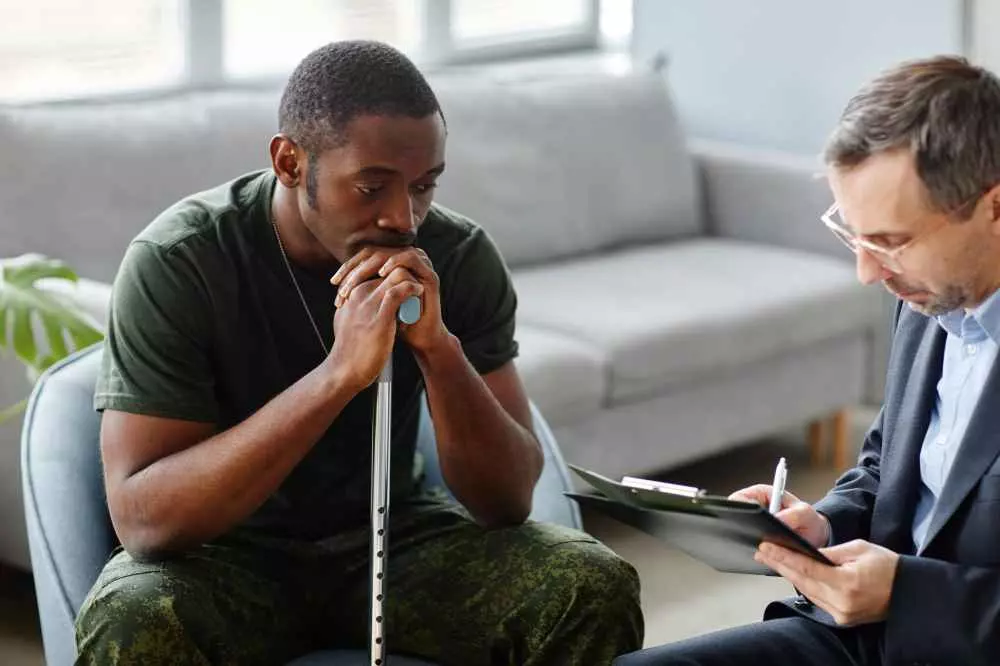Effectiveness of psychotherapy in dealing with war trauma
Psychotherapy is one of the most effective methods of treating and dealing with emotional problems. War trauma is one of the most difficult experiences a person can endure. It affects the psyche, physical health and quality of life of those affected by this traumatic experience. In such a situation, psychotherapy can prove to be an invaluable support for people who are trying to return to a normal life after the trauma of war.
The role of psychotherapy in the healing process
Psychotherapy plays a key role in the healing process after traumatic experiences. Therapists who specialize in working with people affected by war trauma help patients understand, process and accept their emotions and the trauma they are dealing with. A professional therapist uses a variety of therapeutic techniques, such as cognitive-behavioral therapy, psychodynamic therapy and plenary therapy, to adapt to the individual patient's needs.
Psychotherapy also allows patients to reconstruct their identity and rebuild their sense of security. Often people affected by war trauma experience difficulties in interpersonal relationships, feeling alienated and unnecessary. A therapist helps them work on restoring their self-esteem and establishing healthy, satisfying relationships with others.
Psychotherapeutic techniques used in trauma therapy
A variety of psychotherapeutic techniques are used in trauma therapy to help patients cope with their war experiences.
1. Cognitive-behavioral therapy: Helps patients identify and change negative beliefs and thoughts that are associated with trauma. The therapist teaches patients healthy coping strategies to deal with anxiety and stress, and helps them establish new, positive habits.
2. Psychodynamic therapy: Helps patients understand the connections between their war experiences and their current difficulties. The therapist does detective work to identify deeply hidden traumas, and then supports the patient in understanding them and processing the emotions associated with them.
3. Outdoor therapy: Getting out into the fresh air and communing with nature can have a salutary effect on those affected by war trauma. The therapist uses specially designed outdoor tasks and exercises to help patients process difficult emotions and feelings.
All of these psychotherapeutic techniques are designed to tailor therapy to the individual patient's needs and help him or her heal from a traumatic experience.
Advantages of using professional psychotherapy
Professional psychotherapy is undoubtedly one of the most effective ways to deal with the trauma of war. Here are some of the main advantages of using this form of therapy:
1. Individualized approach: psychotherapists who specialize in working with people affected by war trauma take an individual approach to each patient. This type of approach allows them to focus on the patient's unique needs and experiences, which contributes to the effectiveness of the therapy.
2. Safe space to express emotions: The therapist provides a safe and supportive space for the patient to freely express emotions and experience trauma in a controlled manner. This allows the patient to feel safe and understand that their emotions are valid and understood.
3. Reducing PTSD symptoms: war trauma often leads to symptoms of post-traumatic stress disorder (PTSD). Psychotherapy can help reduce these symptoms, such as anxiety, nightmares, panic attacks and emotional hyperalertness.
4. Work to restore a sense of normalcy: War trauma affects all aspects of a patient's life. Psychotherapy helps return to normal functioning, work, social relationships and other areas of life that may have been disrupted by the war experience.
The importance of psychotherapy in long-term mental health
Effective psychotherapy after war trauma not only has short-term benefits, but also plays an important role in a patient's long-term mental health. The long-term effects of psychotherapy include:
1. Reducing the risk of suicide: People affected by war trauma are at higher risk of suicide. Psychotherapy helps identify and manage this risk, which contributes to improving the patient's mental health.
2. Increased self-acceptance and self-confidence: Therapeutic work on working through the trauma and restoring a sense of security leads to an increase in the patient's self-acceptance and self-confidence. This in turn improves quality of life and mental health.
3. Developing healthy coping strategies: Psychotherapy helps patients develop healthy coping strategies to deal with difficulties and stress. The patient learns techniques that are helpful in managing emotions and difficult situations in the future.
Psychotherapy can be one of the key elements in the healing process after war trauma. A mental health specialist, who uses a variety of therapeutic techniques, is able to help patients cope with the difficulties resulting from their war experiences. This therapy allows patients to work through the trauma, develop healthy coping strategies and improve their quality of life after war trauma.
Add comment